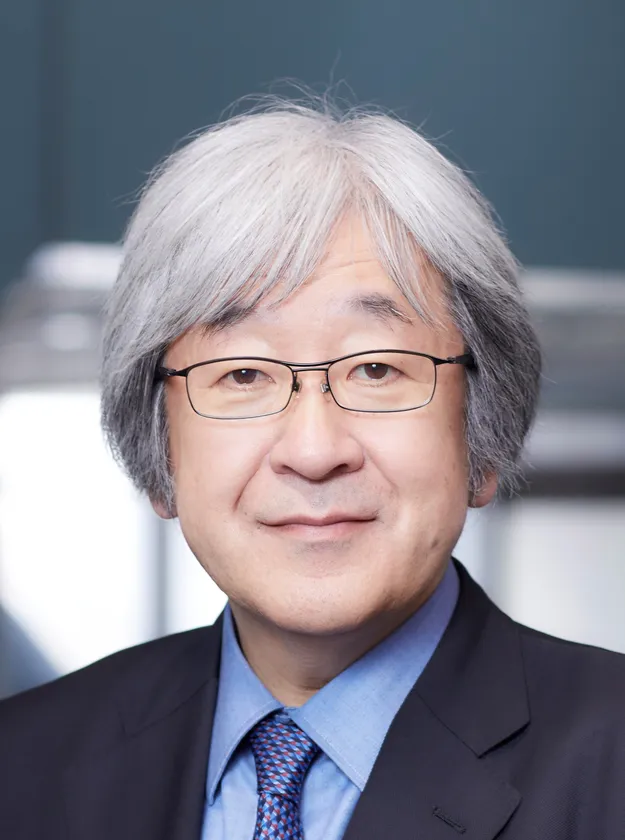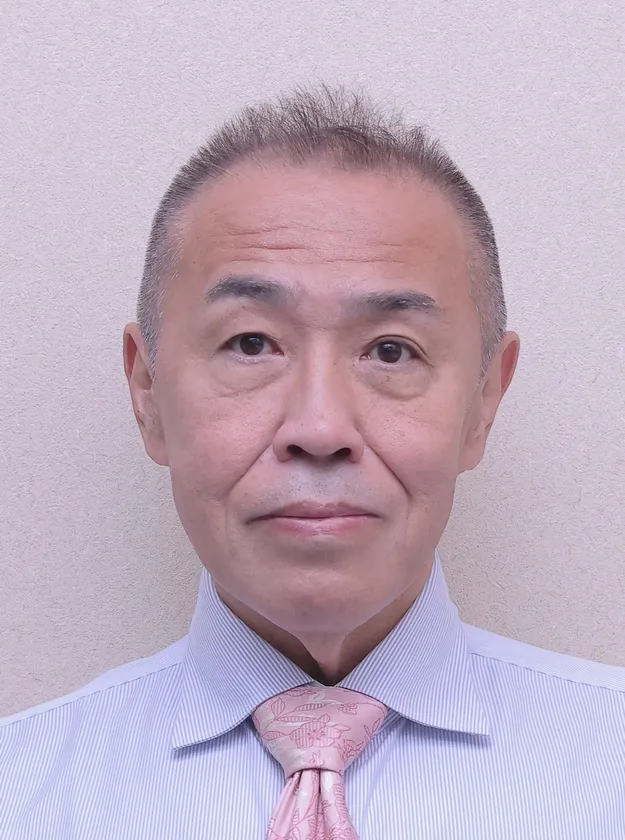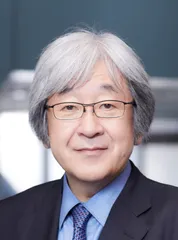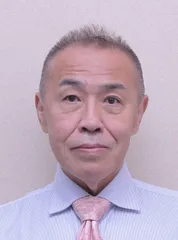Takeda Science Foundation Announces Dr. Nobutaka Hattori and Dr. So Iwata as Takeda Prize for Medical Science 2024 Recipients
公益財団法人 武田科学振興財団 Takeda Science Foundation
The Takeda Science Foundation (Chairman: Dr. Yuji Iizawa, Location: Chuo-ku, Osaka) has decided to present the Takeda Prize for Medical Science 2024 to the following two researchers.
The presentation ceremony will be held on Tuesday, November 12, 2024, at 6:00 p.m. at the Okura Tokyo, and each recipient will receive a certificate, medal, commemorative plaque, and an additional prize of 30 million yen.
The Takeda Prize for Medical Science is one of the most traditional medical prizes in Japan, and is presented to researchers who have made outstanding achievements in the field of medicine and have made outstanding contributions to medicine and medical care. The Takeda Prize for Medical Science was established in 1954 as one of the projects to commemorate the 170th anniversary of Takeda Chemical Industries, Ltd. (currently Takeda Pharmaceutical Company Limited), and was succeeded as a foundation project with the establishment of Takeda Science Foundation in 1963. This year marks the 70th anniversary of the prize, which has been awarded to 141 recipients including this year's recipients.
Nobutaka Hattori, M.D., Ph.D.
Professor, Juntendo University (age 65)
Research theme: Unraveling the Pathogenesis of Parkinson's Disease through Genetic Analysis
So Iwata, Ph.D.
Professor, Kyoto University (age 61)
Research theme: Three-dimensional and time-resolved four-dimensional structural analysis of membrane proteins for medical and pharmaceutical applications

Dr. Nobutaka Hattori

Dr. So Iwata
Nobutaka Hattori, M.D., Ph.D.
<Academic and professional background>
Mar 1985 Graduated from Juntendo University School of Medicine
May 1985 Clinical internship and major student, Neurology, Juntendo University Hospital, Juntendo University School of Medicine
Apr 1990 Entered Doctoral Course, Juntendo University Graduate School of Medicine
Aug 1990 Studied at Nagoya University School of Medicine, Department of Biochemistry II
~to August 1993
Mar 1994 Completed Doctoral program, Graduate School of Medicine, Juntendo University
Received Doctor of Medicine degree from Juntendo University
Apr 1995 Assistant Professor, Department of Neurology, Juntendo University School of Medicine
Jul 1999 Clinical Lecturer, Department of Neurology, Juntendo University School of Medicine
Aug 2000 Full-time Lecturer, Institute for Diseases of Old Age, Juntendo University Graduate School of Medicine
Sep 2000 concurrent appointment as Lecturer, Department of Neurology, Juntendo University School of Medicine
May 2003 Associate Professor, Department of Neurology, Juntendo University School of Medicine
Jul 2006-present Professor, Department of Neurology, Juntendo University School of Medicine
Apr 2019-Mar 2024 Dean, Graduate School of Medicine, Juntendo University
Oct. 2020-present Team Leader, Neurodegenerative Disorders Collaboration Laboratory, RIKEN Center for Brain Science
Apr 2024-present Advisor to the University President, Juntendo University
<Awards>
2001 Juntendo University Alumni Association Academic Encouragement Award
2001 Chairman's Award, The Japan Foundation for Aging and Health
2001 President's Award of the 42nd Annual Meeting of the Japanese Society of Neurology (President Ichiro Kanazawa)
2002 The 39th Bälz Prize, First Prize (Theme: Molecular Mechanisms of Neurodegenerative Diseases)
2003 The Japanese Society of Neurology Award
2004 Thomson Scientific Research Front Award (16 researchers in 13 categories)
2005 ESI Highly Cited Journal (7th in the world in the Parkinson's Disease category from 1996 to 2006)
2012 Minister of Education, Culture, Sports, Science and Technology Award for Science and Technology, Research Category
2014 MDS-AOS: Yoshikuni Mizuno Lecture Award (Pattaya, Thailand)
2017 Narabayashi Prize, the Japanese Society of Neurology
2022 MDS: C. David Marsden Lecture Award (Madrid, Spain)
2023 MDS: The HONORARY Membership Award (Copenhagen, Denmark)
U.S. National Academy of Medicine Healthy Longevity Global Grand Challenge (NAM-HLGC) Catalyst Award
2024 Toshihiko Tokizane Memorial Award
<Research Achievement>
Theme: Unraveling the Pathogenesis of Parkinson's Disease through Genetic Analysis
Dr. Nobutaka Hattori has consistently pursued profound research interests in Parkinson's disease (PD), which have resulted in a number of outstanding research achievements. Notable achievements include the isolation of parkin, the gene responsible for juvenile Parkinson's disease, in 1998; the identification of parkin as a ubiquitin-linked enzyme in 2000; the isolation and identification of CHCHD2, a causative gene related to mitochondrial function, in 2015; and the identification of a family with a mutation in Prosaposin, a cofactor in the lysosomal metabolic system, in 2020. Dr. Hattori's group is the only one to have identified three different causative genes, which is a remarkable achievement. In the area of functional analysis, the identification of parkin as a ubiquitin-linked enzyme in 2000 changed the perspective of PD research and led to a shift to proteolytic systems in the elucidation of pathophysiology. Recently, Dr. Hattori has also focused on biomarkers and demonstrated that abnormal α-Synuclein seeds, which are thought to be the cause of PD, are also present in the blood. This technique heralds the dawn of a new era in which PD can be diagnosed by blood tests. As described above, Dr. Hattori is a world leader in Parkinson's disease research and continues his outstanding activities on the international stage, making significant contributions to the field of neuroscience.
So Iwata, Ph.D.
<Academic and professional background>
Mar 1986 Graduated from the Faculty of Agriculture, The University of Tokyo
Apr 1986 Entered Graduate School of Agriculture, The University of Tokyo
Mar 1991 Completed the same
Apr 1991 JSPS Research Fellow-PD, the Institute of High Energy Physics, Ministry of Education
Sep 1992 Postdoctoral Fellow, Human Frontier Science Program, Max Planck Institute for Biophysics, Germany
Jun 1996 Lecturer, Department of Biochemistry, Uppsala University, Sweden
Jul 1999 Professor, Department of Biochemistry, Uppsala University, Sweden
Mar 2000 Professor, Department of Life Sciences, Imperial College London (to present)
Aug 2004 Diamond Fellow, Diamond Synchrotron Radiation Experimental Facility
Jan 2005 Director, Centre for Structural Biology, Imperial College London
Sep 2005 Research Director, ERATO Iwata Human Membrane Receptor Structure Project, the Japan Science and Technology Agency
Sep 2005 Visiting Principal Investigator, RIKEN Genomic Science Center
Mar 2007 Professor, Department of Cell Biology, Graduate School of Medicine, Kyoto University (to present)
Jun 2012 Group Director, SACLA Science Research Group, RIKEN SPring-8 Center (to present)
<Awards>
1998 Svedberg Award (Swedish Society for Biochemistry and Molecular Biology)
1999 Lindbom Prize (Royal Swedish Academy of Sciences)
2007 JSPS Prize (Japan Society for the Promotion of Science)
2007 Japan Academy Medal (The Japan Academy)
2010 The Gregori Aminoff prize in crystallography 2010 (Royal Swedish Academy of Sciences)
2012 The Commendation for Science and Technology by the Minister of Education, Culture, Sports, Science and Technology (MEXT)
2021 Kobayashi Prize (Kobayashi Foundation)
2023 Shimadzu Prize (Shimadzu Foundation)
<Research Achievements>
Research theme: Three-dimensional and time-resolved four-dimensional structural analysis of membrane proteins for medical and pharmaceutical applications
More than half of all pharmaceuticals target membrane proteins, and their 3D structures provide essential information for the development of new therapies and drug discovery. Dr. So Iwata has consistently studied the structural biology of membrane proteins that are important in medicine and pharmaceuticals. In the early days, he analyzed the structure of supramolecular complexes related to bioenergy production, such as respiratory chains, and elucidated their molecular mechanisms, thereby elucidating the causes of genetic diseases such as mitochondrial diseases. He has since been involved in technological development and has analyzed 25 membrane proteins of medical and pharmaceutical importance, including receptors, making him one of the world leaders in this field. Dr. Iwata also constructed a system at the SACLA X-ray free electron laser facility in Japan that uses visible lasers to initiate reactions in crystals and track subsequent structural changes. Receptors, which are targets for drug discovery, are activated through multiple intermediate states, and obtaining these structures will enable new drug discovery. Dr. Iwata and his colleagues were the first in the world to succeed in direct observation of protein conformational changes in bacteriorhodopsin and photoreceptor rhodopsin after light irradiation. Thus, Dr. Iwata have pioneered a new academic field that will enable the design of new functional proteins and compounds that will contribute to medicine and pharmaceuticals.
FAQ
Q. About the Candidate Eligibility
A. Researchers who have made outstanding contributions to the medical community with major achievements in basic and clinical medicine in Japan are eligible for this prize. Any nationality is acceptable.
Q. How is the Takeda Prize for Medical Science selected?
A. The Selection Committee deliberates and decides the recipients of the prize based on the recommendations of the Foundation's directors, trustees, honorary advisors, Takeda Prize for Medical Science recipients, and other nominators as determined by the Foundation. The selection committee is chaired by Ryozo Nagai, President of Jichi Medical University. Other members of the selection committee are not disclosed.
Q. About the Takeda Science Foundation
A. The Takeda Foundation was established in 1963 with an endowment from Takeda Chemical Industries, Ltd. (currently Takeda Pharmaceutical Company Limited) to promote and contribute to the advancement of science and culture in Japan. In addition to the Takeda Prize for Medical Science (prize program), the Foundation provides research grants, scholarships (grants for foreign students, grants for doctoral students in the School of Medicine, and grants for overseas study), organizes international symposiums, operates the Kyo-U Library (a collection and management of historical books on medical herbs), and publishes books.
Takeda Science Foundation official website: https://www.takeda-sci.or.jp/
- Category:
- Other
- Genres:
- Medical care Economy(Japan) Society(Japan)


